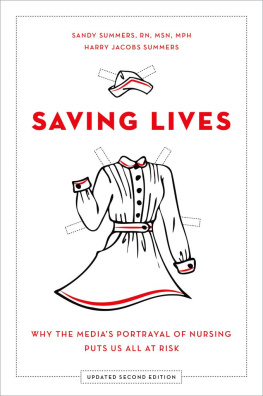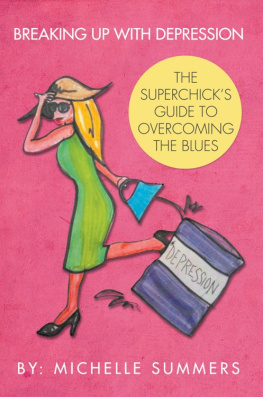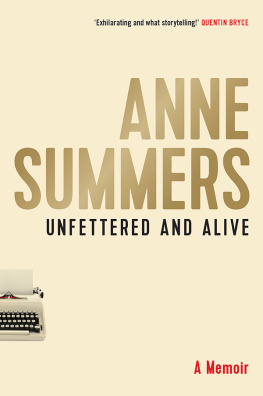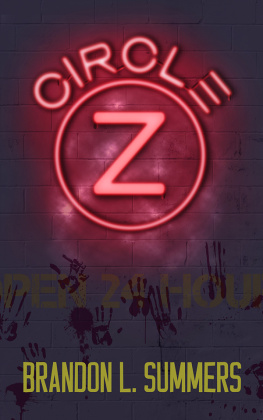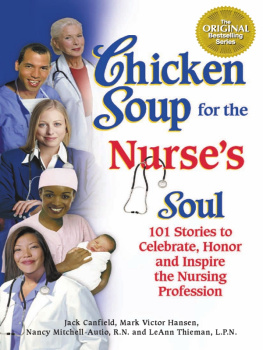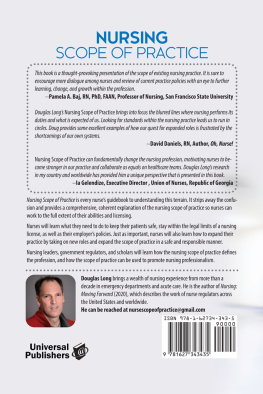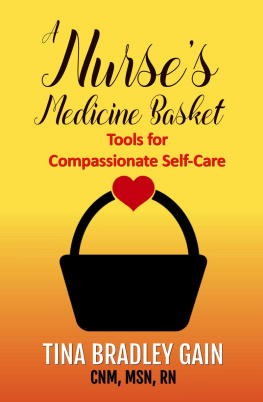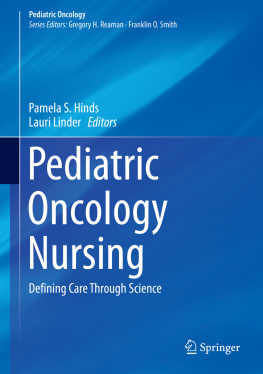SAVING LIVES

Oxford University Press is a department of the University of Oxford. It furthers the Universitys objective of excellence in research, scholarship, and education by publishing worldwide.
Oxford New York
Auckland Cape Town Dar es Salaam Hong Kong Karachi
Kuala Lumpur Madrid Melbourne Mexico City Nairobi
New Delhi Shanghai Taipei Toronto
With offices in
Argentina Austria Brazil Chile Czech Republic France Greece
Guatemala Hungary Italy Japan Poland Portugal Singapore
South Korea Switzerland Thailand Turkey Ukraine Vietnam
Oxford is a registered trademark of Oxford University Press in the UK and certain other countries.
Published in the United States of America by
Oxford University Press
198 Madison Avenue, New York, NY 10016
Sandy Summers and Harry Jacobs Summers, 2015
Lyrics from Aimee Manns Invisible Ink
used by permission of Aimee Mann/SuperEgo Records
All rights reserved. No part of this publication may be reproduced, stored in a retrieval system, or transmitted, in any form or by any means, without the prior permission in writing of Oxford University Press, or as expressly permitted by law, by license, or under terms agreed with the appropriate reproduction rights organization. Inquiries concerning reproduction outside the scope of the above should be sent to the Rights Department, Oxford University Press, at the address above.
You must not circulate this work in any other form and you must impose this same condition on any acquirer.
Library of Congress Cataloging-in-Publication Data
Summers, Sandy, author.
Saving lives : why the medias portrayal of nursing puts us all at risk/Sandy Summers, Harry Jacobs Summers.Updated edition.
p. ; cm.
Why the medias portrayal of nursing puts us all at risk
Includes bibliographical references and index.
ISBN 9780199337064 (paperback : alk. paper)
I. Summers, Harry, author. II. Title. III. Title: Why the medias portrayal of nursing puts us all at risk.
[DNLM: 1. Nursesstandards. 2. Nursingstandards. 3. Mass Media. 4. Nurses Role. 5. Nurse-Patient Relations. 6. Public Relations. WY 16.1]
RT82
610.73dc
232014019488
eISBN 9780199337088
This material is not intended to be, and should not be considered, a substitute for medical or other professional advice. Treatment for the conditions described in this material is highly dependent on the individual circumstances. And, while this material is designed to offer accurate information with respect to the subject matter covered and to be current as of the time it was written, research and knowledge about medical and health issues is constantly evolving and dose schedules for medications are being revised continually, with new side effects recognized and accounted for regularly. Readers must therefore always check the product information and clinical procedures with the most up-to-date published product information and data sheets provided by the manufacturers and the most recent codes of conduct and safety regulation. The publisher and the authors make no representations or warranties to readers, express or implied, as to the accuracy or completeness of this material. Without limiting the foregoing, the publisher and the authors make no representations or warranties as to the accuracy or efficacy of the drug dosages mentioned in the material. The authors and the publisher do not accept, and expressly disclaim, any responsibility for any liability, loss or risk that may be claimed or incurred as a consequence of the use and/or application of any of the contents of this material.
For our children Cole and Simone
And their future nurses
There comes a time when you swim or sink
So I jumped in the drink
Cause I couldnt make myself clear
Maybe I wrote in invisible ink
Oh Ive tried to think
How I couldve made it appear.
But another illustration is wasted
Cause the results are the same
I feel like a ghost
Whos trying to move your hands
Over some Ouija board
In the hopes I can spell out my name.
What some take for magic at first glance
Is just sleight of hand
Depending on what you believe
Something gets lost when you translate
Its hard to keep straight
Perspective is everything.
Aimee Mann and Clayton Scoble
from Invisible Ink
Aimee Mann, Lost in Space (2002)
CONTENTS
Some years ago, I was invited to be a guest on a national talk show to discuss a popular television drama Ill call Hospital. Also on the panel of guests were the actors who played physicians on the drama, a physician who wrote for the show, and two other physicians. The producers of the talk show suggested that if Id never seen the series (I had not) I should watch a couple of episodes before coming to Los Angeles.
I complied, watched several episodes, and was disappointed not to be surprised by the way theyd chosen to depict nursing. In the episodes, nurses were a nebulous, silent presence in the background. They never actually did anything other than stand around watching the doctors, who were busy single-handedly saving lives.
These Hollywood superdocs did it allincluding the nursing duties that I, in my short twenty-year nursing career, never witnessed any physician perform. The only featured nurse role was the most dysfunctional character of all. Portrayed as a brooding, damaged nurse, she was tortured not by overwhelming responsibilities to the patients or by understaffing or burnout, but rather by having to decide which physician to sleep with next.
As with most Hollywood-generated medical shows, I found myself asking the same question Ive been asking since my first Dr. Kildare episode: Where are the real nurses?
According to the Gallup polls, nurses are the most trusted professionals. Still, that has not changed Hollywoods hackneyed, one-dimensional portrayals of nurses as sex objects, handmaidens, psychopaths, and worse. In fact, the entertainment industry has done very little to present nurses in a positive light.
Consider my experience on the talk show. After arriving at the Los Angeles studio, I was taken to a small room obviously intended for storage of extra equipment and maintenance supplies, and I was told to wait there until someone came to get me. Thinking I had been mistaken as an applicant for a janitorial position, I explained that I was actually a guest on the show and asked to be taken to the Green Room. I was told the Green Room was not available and left to stare at the walls.
After two hours of staring at brooms and discarded stage lights, I wandered to the floor below. There I found the Green Room where a party for the shows other guests was in full progress. When asked who I was, I replied that I was the nurse author who had been asked to be a guest on the show.
Apparently that answer didnt cut it because I was told that the event in the Green Room was a private party for the shows other guests, and I would have to return to my special waiting area upstairs, or, as I had named it, the nurses only closet.
When taping began, I was seated next to Hospitals scriptwriting emergency room (ER) physician. The show was taped in front of a live audience, and what should have been a two-hour taping session turned into a seven-hour fiasco. Taping was stop and go, and the retaping had tempers and egos running high.
During one of the numerous breaks, an audience member fell from the bleachers, having a full-blown seizure. Id unhooked my microphone and was on my way to see what could be done when I realized the scriptwriting ER physician had not moved. Over my shoulder I said, Come on doc. Man down. Lets go.

